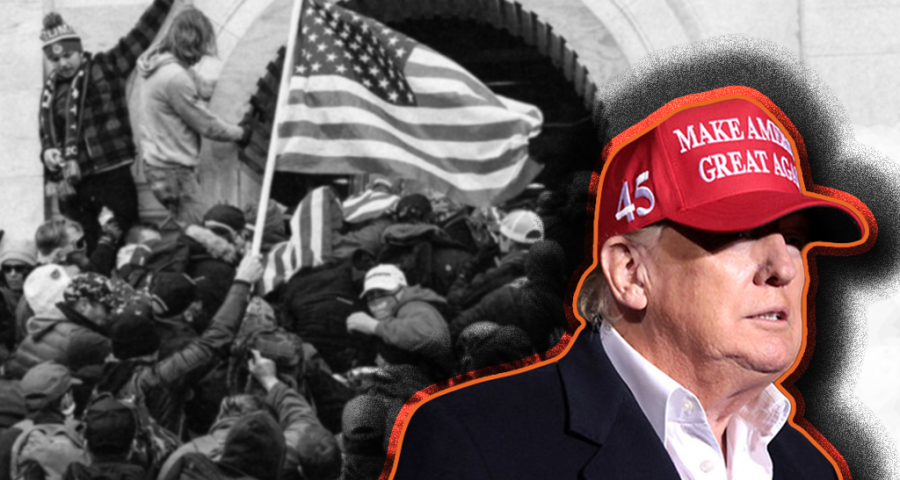In the final weeks of the presidential campaign, major newspapers are giving former President Donald Trump’s federal criminal indictment for alleged crimes related to the January 6 insurrection a fraction of the coverage they gave former Secretary of State Hillary Clinton’s use of a private email server in 2016, according to a new Media Matters study.
Media Matters reviewed print coverage in five newspapers — Los Angeles Times, The New York Times, USA Today, The Wall Street Journal, and The Washington Post — for stories mentioning Trump’s indictment in the week following U.S. District Judge Tanya Chutkan’s October 2 unsealing of special counsel Jack Smith’s latest filing, which reveals damning new evidence of the former president’s alleged crimes.
We found the papers ran 26 combined articles mentioning Trump’s indictment in the week after the unsealing of Smith’s filing. But those same papers published 100 combined articles — nearly 4 times as many — that mentioned Clinton’s server in the week after then-FBI Director James Comey’s notorious October 28, 2016, letter on new developments in that probe, as we documented in a 2016 study.
The papers ran more than 6 times as many combined front-page stories that mentioned Clinton’s server (46) as they did front-page stories that mentioned Trump’s indictment (7) over those periods.

Obsessive news media focus on Clinton’s server in the final weeks of the 2016 presidential campaign helped Trump to victory, even as Comey ultimately reconfirmed that no charges were appropriate in the case. But eight years later, with one presidential candidate facing active prosecution for federal charges related to his attempt to subvert an election, outlets are making different choices.

